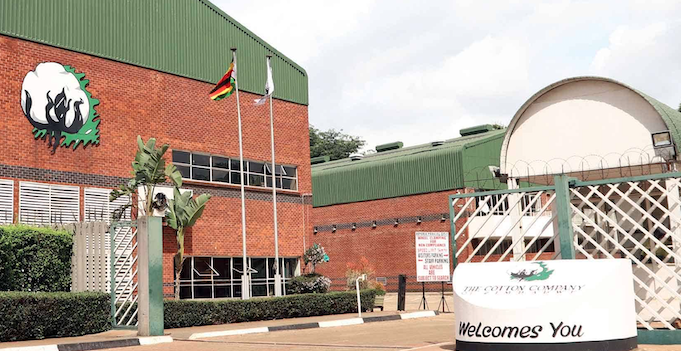Turning back the clock 10 years, the story of Cottco was one of a near disaster. The company, a linchpin of Zimbabwe’s agriculture sector, teetered on the brink of collapse due to a crippling financial crisis. The potential demise threatened not just Cottco itself, but also the livelihoods of thousands of families that depended on it.
The Government, however, intervened. Funding was provided to keep Cottco afloat.
The initial year of the rescue plan in 2014 was not without its hiccups. A complex inputs distribution system caused early stumbles, but these were ironed out in subsequent years.
The Government’s intervention then started paying dividends. Cotton production saw a welcome rise and a sense of renewed confidence among farmers, who returned to the fields. From a record low output of 28 000 tonnes since the 1992 drought, production gradually increased, reaching 144 000 tonnes in 2018.
Potential suitors, too, took note of Cottco’s regained stability, with some expressing interest in the company. While issues like delayed farmer payments persisted, the overall outlook somehow seemed cautiously optimistic.
Unfortunately, the story does not end there.
Allegations of corruption, which have haunted Cottco in the past, have begun to resurface. Previously, some senior managers and board members faced allegations of corruption.
This led to the departure of several high-ranking executives.
Fast forward to today, a dark cloud seems to be gathering once again. Recent media reports suggest a resurgence of corruption, with several senior managers under investigation for allegedly stealing resources like farming inputs, fuel and cotton inventory.
This creates a worrying picture for Cottco’s future.
Over the past year, several senior managers at Cottco have been suspended or resigned on allegations of corruption and mismanagement.
These include misuse of supplies, fuel diversion and even theft of cotton products.
The recent suspension of the loss control manager, Mr Tonodaishe Hove, who is accused of both mishandling corruption investigations and potentially obstructing justice, highlights the seriousness of the situation.
This removal of senior officials suggests widespread corruption, raising concern over the firm’s health.
“We are seeing troubling signs at Cottco again,” a former executive with the company, who cannot be named for professional reasons, said. “Allegations of embezzlement by senior management are particularly concerning.”
Cottco chairperson Mr Sifelani Jabangwe recently acknowledged that investigations were underway.
He also said the police were involved in some cases, while Cottco is conducting its own internal investigations.
Even though some people have resigned, he said, everyone involved would be held accountable.
“This process takes time due to recruitment and clearance procedures for investigators,” said Mr Jabangwe. “The investigations cover a range of alleged abuses, potentially including theft, and we have also involved the police in certain cases.”
Mr Jabangwe said the company was committed to recovering Government-supplied inputs and preventing future theft. He said although the challenges had been identified in Mutoko, Mutare and Sanyati, the investigations would be expanded to other business units to restore order and transparency.
In 2023, Ministry of Lands, Agriculture, Fisheries, Water and Rural Development Permanent Secretary Prof Obert Jiri admitted that there was a serious problem with abuse of cotton supplies.
Corruption at Cottco could jeopardise benefits to farmers.
Also read: ZETDC Seals 500MW Solar Energy Agreement With UAE-Based Business
The recent suspensions, while potentially necessary, expose deep-rooted corruption that could cripple the firm.
While the challenges facing Cottco are undeniably daunting, there is still a window of opportunity for the company’s revival.
Addressing the corruption allegations head-on is considered crucial.
This not only ensures the continued growth of this critical sector, but also safeguards the livelihoods of people who depend on it.
A leadership vacuum is currently affecting the company as it lacks a substantive managing director.
Other key positions are filled by acting personnel.
The Cottco board’s term also recently expired.
Mr Pious Manamike, the former managing director, resigned in December 2022.
Ms Prisca Mutembwa was then appointed substantive managing director in October 2023, but she failed the three months’ probation and left the company in December.
Mr Munyaradzi Chikasha, who previously held the acting managing director position before Ms Mutembwa’s appointment, has now resumed the role.
Now, the question is: Can Cottco weather these storms and reclaim its former glory?
Only time will tell.
For comments, Feedback and Opinions do get in touch with our editor on WhatsApp: +27 82 836 5828

For comments, Feedback and Opinions do get in touch with our editor on WhatsApp: +44 7949 297606.
